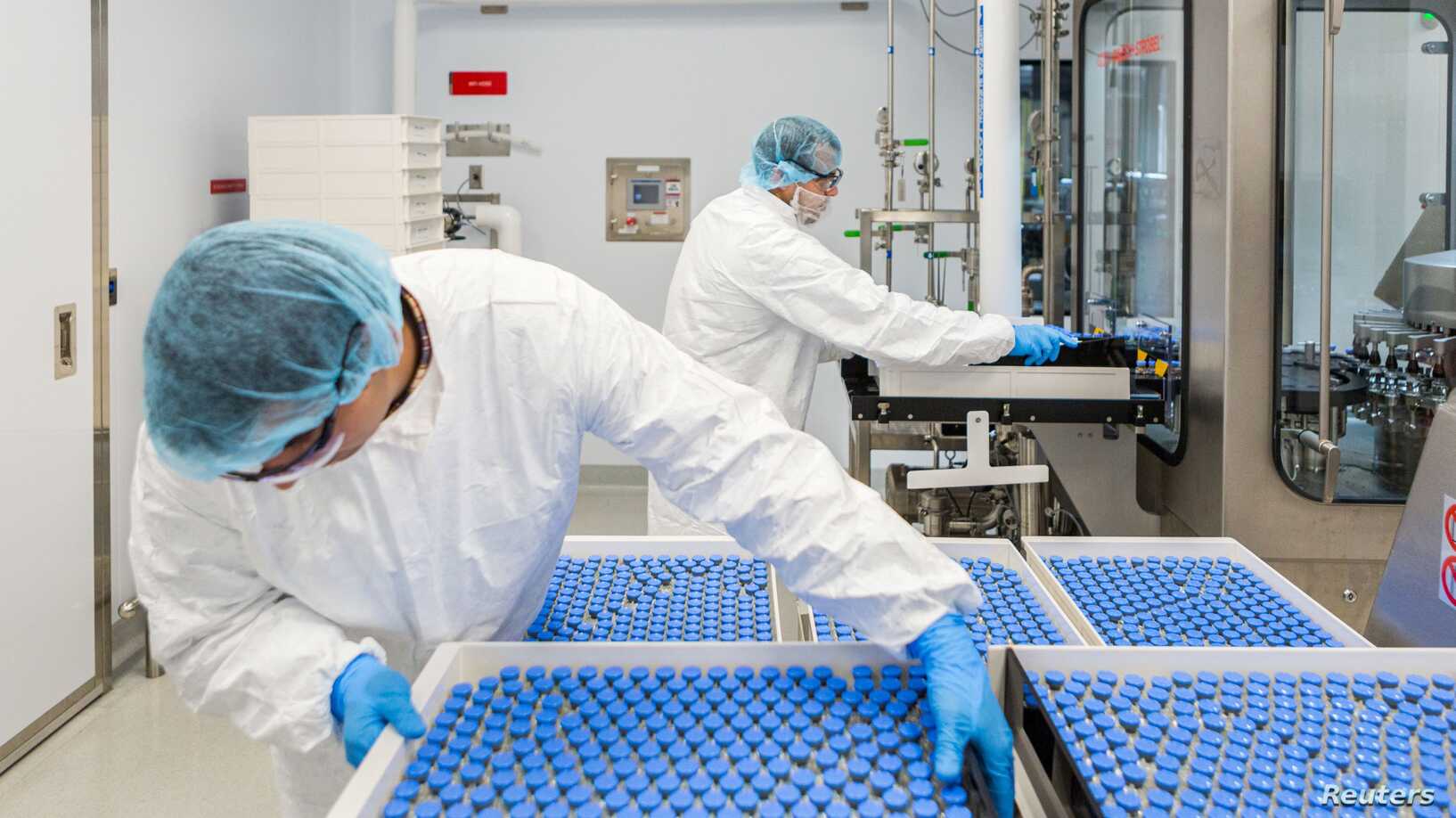
Hopes of Coronavirus remedies grow while shutdowns fade

Hopes that a new drug and vaccine could soon be available to help treat patients suffering from COVID-19 offer a healthy dose of optimism as countries cautiously prepare to return to normal life.
The U.S. Food and Drug Administration is expected to announce authorization for remdesivir, for use in emergencies, after testing of the new drug showed improvements in COVID-19 patients. In Britain, Oxford University researchers say a vaccine for coronavirus, currently being tested on people, could be widely available as early as September.
Quarantines, shutdowns and personal protection gear seem to have helped some countries weather the worst of the COVID-19 epidemic. As economies tank and unemployment grows, governments are taking cautious steps toward reopening.
Germany relaxed its lockdown measures on Monday with people required to wear face masks in public and maintain social distancing.
The famed Berlin Philharmonic has scheduled its first post-lockdown performance for Friday. Players will come together on stage as a chamber orchestra, seated at a distance from one another, for the first time since March 11. There will be no audience in the philharmonic hall, and the concert will be streamed live for free via the orchestra’s Digital Concert Hall.
Italy has set May 4 to start reopening. But Italian news agency ANSA reports that the southern Calabria region is permitted to open bars and restaurants starting Thursday and serve guests at outdoor tables. In the capital, Rome, public transportation will resume service with 88 percent capacity and shorter hours. People will have to wear masks in public transit and keep social distance when outside their homes. Posting signs to mark the appropriate distance in public places began earlier this week. ANSA reports that some of the most popular spaces, such as Villa Borghese, will be surveilled by drones.
The Spanish government is permitting football (soccer) players to return to their clubs May 4 to begin individual training with a coach after being tested and proved to be free of the virus. Children younger than 14 were allowed to go out for the first time Monday, after weeks of a compulsory stay-at-home order.
Museums and historic monuments in China’s capital, Beijing, will reopen Friday with some restrictions. The Forbidden City will allow only 5,000 visitors a day instead of the usual 80,000.

But some countries will remain closed for a while yet. British Prime Minister Boris Johnson, who has recently recovered from coronavirus himself, has said Britain is not ready. Johnson on Wednesday thanked the country’s national health service for taking good care of him, and also for assisting his fiancé, Carrie Symonds, who has just had a baby boy. Symonds was infected with coronavirus during her pregnancy but recovered in about a week. Johnson said he wants to see a consistent fall in the death rate from the virus and ensure that the country’s national health has sufficient test kits and equipment to treat the infected people before reopening.
While Sweden’s neighbors Denmark and Norway reopen, Sweden may be forced to go in the opposite direction. The Scandinavian country remained opened for school and business throughout March and much of April, with only recommendations for people to take precautions. The absence of mandated measures seems to have resulted in the spike of infections and deaths from COVID-19. As of Wednesday, Sweden had more than 20,000 cases and close to 2,500 deaths, compared with Norway and Denmark which together had about 17,000 cases and about 650 deaths.
In Asia, China and Vietnam seem to have contained the coronavirus, but some other Asian countries are not doing so well.
Japanese regional leaders have urged the central government to extend the nationwide state of emergency declared April 16 to slow the spread the virus. The measure is set to end May 6. Some local leaders want a nationwide measure to end as they worry about the economic impact. But Prime Minister Shinzo Abe said Wednesday he could not promise to end the emergency on May 6 as the country continues to face “difficult situations.”
Abe also expressed doubt that Japan will be able to host the Tokyo Olympics, which organizers have already postponed by a year after determining there was no safe way to hold the games starting in July.
Several U.S. states have begun to relax containment measures and others are planning to do so even as the country’s death toll topped 60,000 and more than 1 million have COVID-19. Andrew Cuomo, governor of New York, the hardest hit state with almost 300,000 cases, is working on getting as many people as possible tested for the coronavirus so people who are not infected can return to work.
President Donald Trump said the federal government’s coronavirus social distancing guidelines will be “fading out” when they expire Thursday and states move to reopening.
The pandemic is taking a heavy toll on the global workforce. Half of the world’s employees are at risk of losing their incomes, according to the International Labor Organization (ILO) in Geneva.
ILO Director-General Guy Ryder said Wednesday there are 2 billion informal workers – employees with little or no job security – worldwide. Of those, some 1.6 billion have had their chances to earn a living dramatically reduced “because of the current COVID-19 crisis.”
World Health Organization Director-General Tedros Adhanom Ghebreyesus warned countries easing lockdown that the virus remains “extremely dangerous” and to act with extreme caution.
The number of COVID-19 cases worldwide Wednesday reached more than 3.2 million with more than 227,000 deaths, according to Johns Hopkins University statistics.
Source: VOA
The post Hopes of Coronavirus remedies grow while shutdowns fade appeared first on Nile Post.
0 Response to "Hopes of Coronavirus remedies grow while shutdowns fade"
Post a Comment